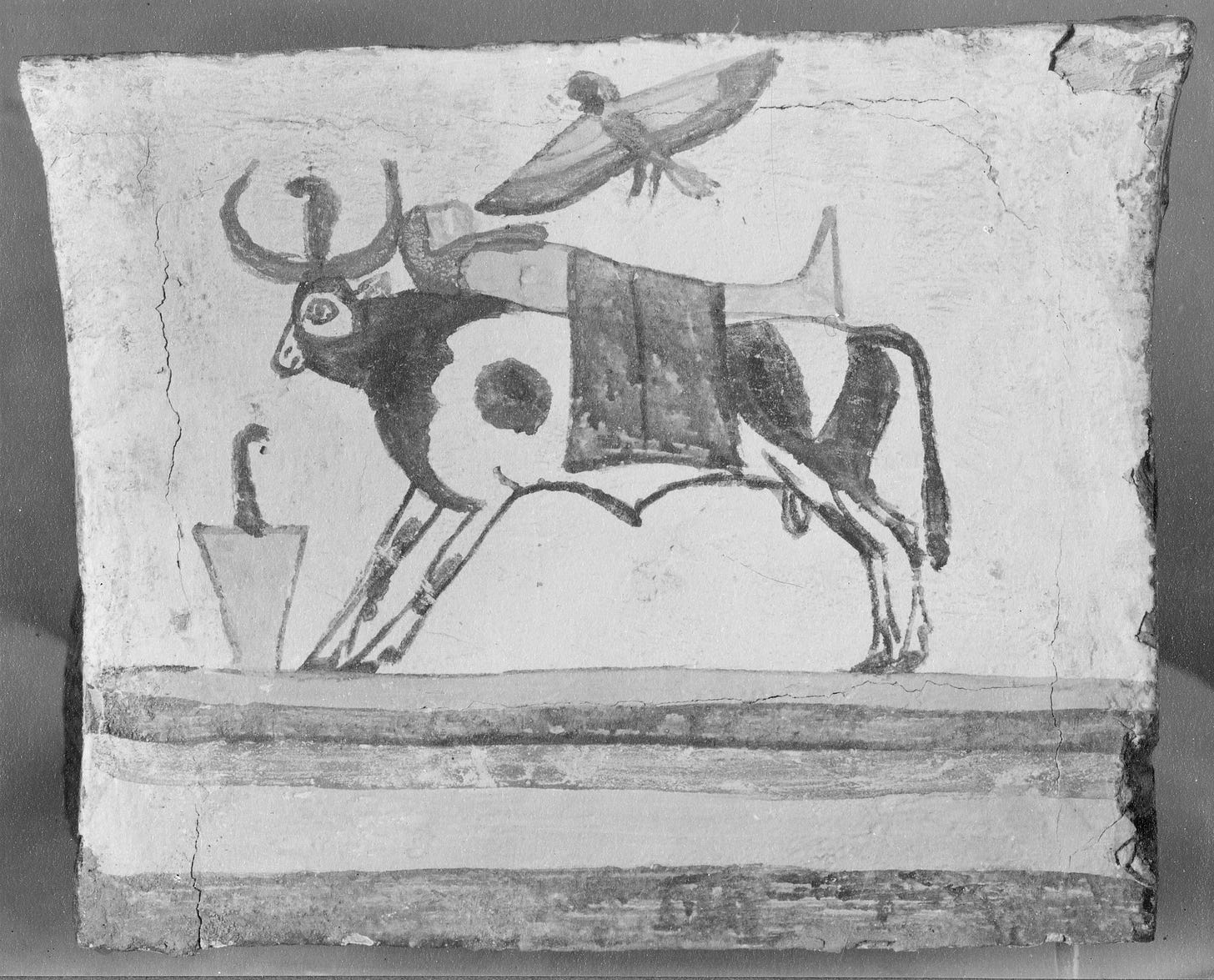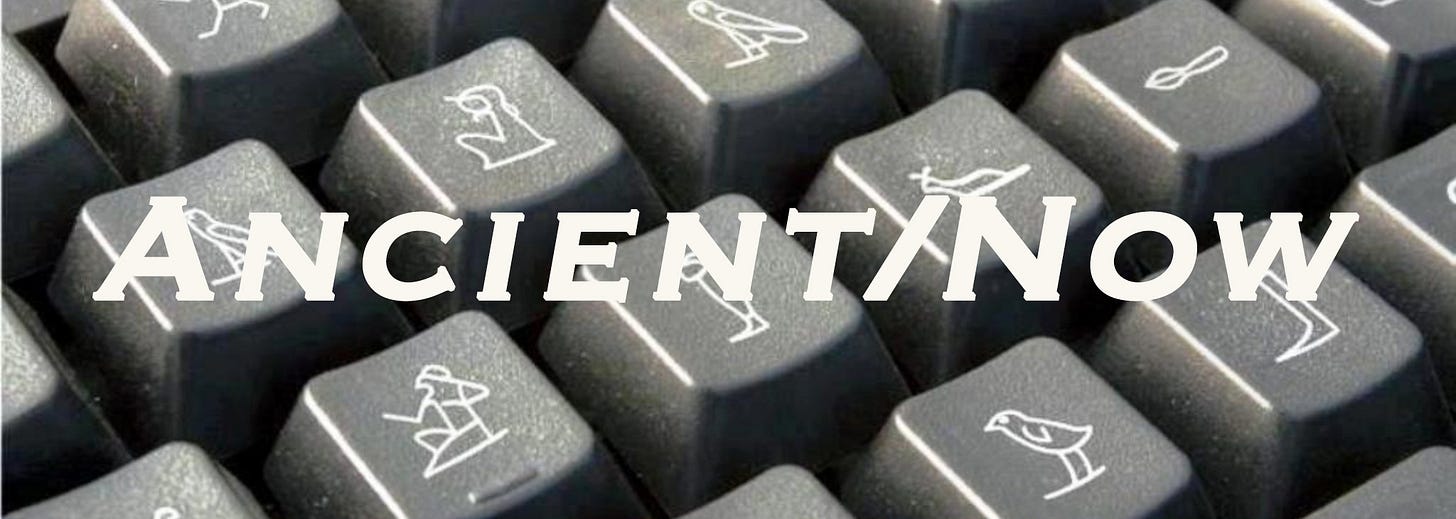An Egyptian woman traces her DNA to a mummy from the Saite Dynasty? Well, maybe not.
Breaking down the claims of yet another over-hyped headline about ancient Egypt
The headline reads, “Egyptian woman traces her DNA to ancient mummy from Saite dynasty.” Say what? The Egypt Independent, which reported that an Egyptian woman named Treveina Basily “found out that her DNA directly descends from an Ancient Egyptian mummy dating back to the Saite dynasty.” If the thousands of us sending off our test tubes of saliva to companies like Ancestry and 23andMe were pressed, I bet the majority of us would admit to a hope in the back of our minds that our genetic results would come back with some fascinating result that would give us a cool story to tell at parties and impress others with our scientifically documented pedigree. Many DNA testing companies play into this desire for a genetic narrative, offering customers interesting facts about their genomes. For instance, according to her National Geographic DNA results, Jordan is related to King Tut!
The Saite Dynasty (ca. 664-525 BCE) of ancient Egypt is about 2500 years distant from 2023, so how was a genetic link established between an ancient mummy and a modern Egyptian woman? Who are the sources behind this news story and what is their evidence? I’ll be honest. I had a pretty good idea that this headline was clickbait when I saw it—tracing a modern woman’s DNA to an ancient mummy is not a simple, let alone uncomplicated, matter. This is a media article, not a paper published by an academic or scientific journal open to criticism and data checking. I wanted to take a look under the hood, so to speak, and see what was there.
What I found was a house of cards built on sand. The first four words of the article, specifically describing Treveina Basily as an “Egyptian-Christian woman,” combined with the featured photo immediately communicate the article’s underlying purpose of presenting modern Egyptians as a light-skinned nation, an increasingly common theme in Egyptian media and advertising. Still, I read on, looking for the specifics of the genetic analysis that connected Basily’s DNA with that of an ancient mummy. The article is unclear regarding which company Basily used to obtain her DNA results (why not?—without that information the quality of the analysis performed is in question), and described them as too complicated to be understood by a non-specialist (what kind of company provides its customers with DNA results that they can’t understand?). The complexity of her genetic results led Basily to consult Facebook groups (!?) interested in genetic genealogy, so she could understand more about her DNA analysis.
Eventually she contacted Mohamed Abdel Hady, whom the article describes as a researcher and engineer, for an “interpretation” of her results. The article doesn’t say how she met him—maybe we are to assume she met him online in one such Facebook group.
“I contacted engineer Mohamed Abdel Hady for an interpretation…and there was a surprise, that the DNA proved that my kinship dates back to one of the Pharaonic eras, specifically to the Saite era,” Basily said.
According to the article, Hady analysed Basily’s DNA results and published a paper entitled, “An Egyptian whose genes date back to the era of the mummies of the Saite era,” in which he outlines the findings that connect Basily’s DNA results to an ancient Egyptian mummy. Oftentimes popular articles on scientific studies will link to the original academic publication, but the Egypt Independent shared no such links to Hady’s cited study, and I was unable to find his paper on any search engines available at UCLA and beyond. (I suspect his paper is only published in Arabic, which would make it harder to find in search engines using English.) However, I did find what appears to be Hady’s Twitter profile, where he tweets about his research, including his analysis of Basily’s genetic results.
Hady tweets primarily in Arabic, but Google’s translations offer enough information to make it clear that he has a strong interest in demonstrating that modern Egyptians have a direct genetic connection to the ancient Egyptians—which most genetic studies support, including a well-known 2005 National Geographic study (their link is no longer live, probably because of how hot this topic is, but there are archived press releases. For a specifically Coptic perspective on the study, see this article.) But Hady’s intent seems to go further than just connecting modern Egyptians to ancient Egyptians, but to proving an argument of genetic purity.
The Egypt Independent article concludes, quoting Basily,
“The issue is not that I am purely Egyptian or not. Many Egyptians do the analysis and the result shows that they are 100 percent Egyptian…The difference is that my analysis shows a genetic similarity with the DNA of a mummy,“ she explained.

We have already featured several studies on biomolecular analysis of ancient DNA here on Ancient/Now because we find it to be interesting and worthwhile research that has the potential to deepen our understanding of ancient peoples in a myriad of ways not possible using only historical sources and archaeological excavation. That being said, we have also cautioned that such research is easily co-opted and manipulated for ideological and/or political purposes to help people create narratives about their national identity. (For instance, see this article about a study of the British genome from The Daily Mail which asks if the Welsh are the “truest Brits,” this article in The Guardian about the lack of genetic traces left in the English population by the ancient Romans and the Vikings, and this article about white nationalists questioning the validity of genetic tests that failed to confirm their beliefs about their racial identity.) This Egypt Independent article’s lack of citation to a widely accessible, peer-reviewed scientific study, the use of language like “100 percent Ancient Egyptian lineage, with no mixing whatsoever,” and Hady’s racially-focused Twitter feed all lead me to view this story with a healthy skepticism. It is dangerous enough when legitimate scientific studies are cited and used to create or substantiate racist and/or ideological narratives about the past; it is even more dangerous to publish as fact such narratives without any clear, verifiable scientific sources.
As this story—which makes a claim that it then fails to substantiate in any meaningful way—made the rounds on social media all week courtesy of the sensationalized (and, it turns out, misleading) declaration of its headline, it reminded me of how many of these kinds of sensationalized headlines people scroll through on their phones everyday, influencing their opinions and understanding of their place in the world whether they actually click on a link and read the articles or not. We are bombarded daily on our devices with information from tv, social media, and countless news outlets. No one has time to sort through the cacophony and examine the underlying sources and power structures that influence every byte of information that hits their screens. The vast majority of readers will never get further than the headline of this particular story, and many who do click on it and read the article may not consciously pick up on its racial and ideological agenda or question the lack of a peer-reviewed study among the named sources. But an impression will be left in readers’ minds, their perspectives influenced and identities negotiated. Even as we scroll on to the next headline, the narrative advances, and our collective view of what qualifies as fact becomes a little more fractured.
Using kinship—whether through genetics, genealogy, or both—to establish influence, legitimacy, and power is not a modern phenomenon, but is as ancient as civilization and human systems of power. Expect to see such stories proliferate as competitive nationalism rises. You can also read more on kinship and power in the ancient Mediterranean and the modern world in my Substack post linked below.
Family, Kinship and Power Systems
As recounted in Episode #25 “Family and Kinship in Ancient Egypt,” part of our inspiration for the topic was a conversation we had about the contemporary surge of interest in genealogy and ancestry DNA testing, particularly in the U.S. Jordan and Kara touched on the idea that one possible reason for such interest is that America is a nation of immigrant…








You know you white people are hilarious. In the past you have distanced ancient Egyptians from modern Egyptians so you can justify stealing their land and artifacts but now you still try to distance modern Egyptians from ancient Egyptians you can give their civilization as reparations to black people as result of your “white guilt”. It’s very funny how you can’t fathom that an Egyptian is related their Egyptian ancestors.
I don't know why western woke academics think they can dictate to Egyptians about their history. Focus on destroying America and butt out of Egyptian history. We don't want you using it for your stupid Marxist propaganda. Bye.